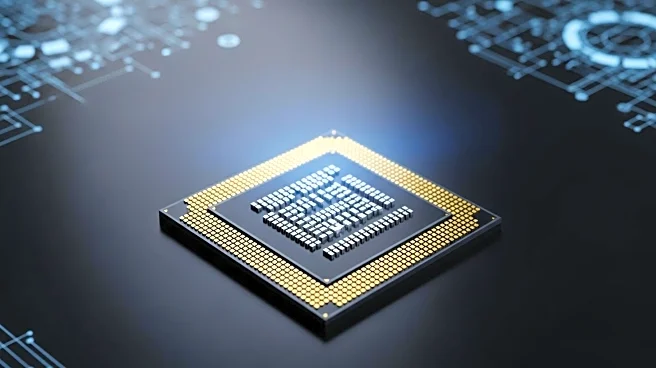What is the story about?
What's Happening?
In August, the Trump administration acquired a 10% stake in Intel, making it the largest shareholder of the chipmaker. This move is part of a broader strategy to bolster U.S. capabilities in high-end chip manufacturing, especially as competition with China intensifies. Historically, the U.S. government has taken stakes in companies during crises, such as the financial crisis when it invested in AIG, General Motors, and Chrysler. The acquisition is seen as a strategic effort to ensure national security and reduce dependency on foreign-made chips, particularly from Taiwan's TSMC, which produces 90% of the world's advanced chips.
Why It's Important?
The U.S. government's stake in Intel is significant for national security and technological leadership. Intel is crucial for the U.S. to regain its position in high-end chip manufacturing, which is vital for defense and technology sectors. The move aims to mitigate risks associated with foreign supply shocks and potential security vulnerabilities in foreign-made chips. This intervention reflects growing concerns over China's influence and the strategic importance of semiconductor manufacturing. The government's involvement could also impact Intel's operations, potentially leading to political pressure and inefficiencies.
What's Next?
The Trump administration's equity stake in Intel is expected to influence the company's strategic direction, with potential implications for innovation and competitiveness. While the government will not have voting rights, Intel may face political pressure to align with national security priorities. The administration's focus on reducing foreign dependency could lead to further investments in domestic semiconductor manufacturing. Analysts will be watching how Intel navigates these changes and whether the government's involvement will ultimately benefit or hinder its growth.
Beyond the Headlines
The government's stake in Intel raises questions about the balance between public intervention and market dynamics. While government backing can provide stability and resources, it may also lead to inefficiencies and favoritism, potentially stifling innovation. The situation highlights the complex interplay between national security and economic policy, as well as the challenges of maintaining technological leadership in a competitive global landscape.
















